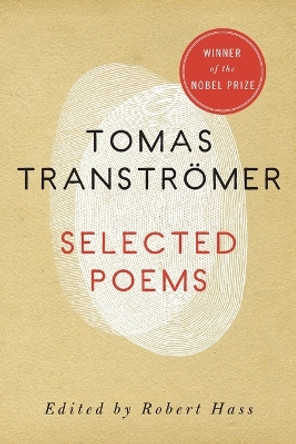Description
About the Author
Tomas Transtroemer (1931-2015) was awarded the Nobel Prize in Literature in 2011. He was born in 1931 in Stockholm, where he grew up, but spent many long summers on the island of Runmaro in the nearby archipelago, evoking that landscape in his early work, which draws on the aesthetic tradition of Swedish nature poetry. His later poetry is more personal, open and relaxed, often reflecting his broad interests: travel, music, painting, archaeology and natural sciences. He is Scandinavia's best-known and most influential contemporary poet. His books sell thousands of copies in Sweden, and his work has been translated into over 50 languages, with substantial or complete editions of his work published in over 20 languages. Transtromer started writing poetry while at the oppressive Sodra Latin Grammar School (its atmosphere caught by Ingmar Bergman in Alf Sjoberg's Frenzy, which was filmed there, the young Tomas amongst the pupils). But he was devouring books on all subjects, especially geography, with daily visits to the local library, where he worked his way through most of the non-fiction shelves. However, this bookish adolescence was shadowed by the war, by his parents' divorce and the absence of his father, and at 15 he experienced a winter of psychological crisis. He published his first collection, 17 Poems, in 1954, at the age of 23. After studying psychology at the University of Stockholm, he worked at its Psychotechnological Institute, and in 1960 became a psychologist at Roxtuna, a young offenders institution. From the mid-1960s he divided his time between his writing and his work as a psychologist, and in 1965 moved with his family to Vasteras, where he spent the rest of his working life. In 1990, a year after the publication of his tenth book of poems, Transtromer suffered a stroke, which deprived him of most of his speech and partly inhibited movement on his right-hand side. Swedish composers have since written several left-hand piano pieces especially for him to play. Since his stroke, he has published a short book of 'autobiographical chapters', Memories Look at Me (1993) and a new collection, The Sad Gondola (1996), both included in Robin Fulton's translation of his Bloodaxe New Collected Poems (1997). In 2004 he published The Great Enigma, a slim volume containing five short poems and a group of 45 even smaller haiku-type poems. These were added to the New Collected Poems to form Transtromer's first collected edition to appear in the States, licensed by Bloodaxe Books to New Directions in 2006 under the title The Great Enigma: New Collected Poems. That edition was published by Bloodaxe Books in the UK as the latest revised and expanded edition of New Collected Poems in 2010. Transtromer has also translated other poets into Swedish, including Robert Bly and Hungary's Janos Pilinszky. Before winning the Nobel Prize in Literature in 2011, he had won many other international awards for his poetry, including the Neustadt International Prize for Literature in the US, the Bonner Award for Poetry, Germany's Petrarch Prize, the Bellman Prize, the Swedish Academy's Nordic Prize, and the August Prize. In 1997 the city of Vasteras established a special Transtromer Prize. In 2007, he received a special Lifetime Recognition Award given by the trustees of the Griffin Trust for Excellence in Poetry, which also awards the annual Griffin Poetry Prize.
Reviews
..a book of real importance...this is a generous, intimate book. It should be required reading for everyone interested in poems and the making of poetry. -- Fiona Sampson * Guardian *
I spent early summer days with Airmail: The Letters of Tomas Transtroemer and Robert Bly. In March 1964 Bly drove across Minnesota to borrow Transtroemer's latest collection from a library. On his return he found a letter from the Swedish poet. With this coincidence began 26 years of letters. It's an elegant, humorous and illuminating collection. -- Mary O'Donoghue * Irish Times, Books of the Year 2013 *
Book Information
ISBN 9781852249953
Author Tomas Transtromer
Format Paperback
Page Count 504
Imprint Bloodaxe Books Ltd
Publisher Bloodaxe Books Ltd





